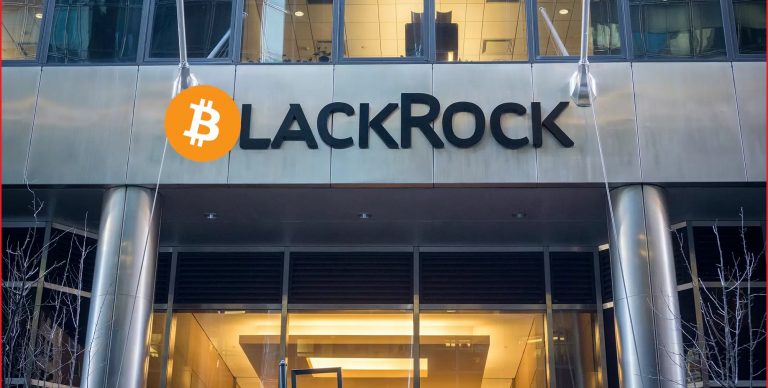
BlackRock, the world’s largest asset manager, has filed an application with the U.S. Securities and Exchange Commission (SEC) to launch a bitcoin exchange-traded fund (ETF). The move signals the growing interest and acceptance of the cryptocurrency among institutional investors.
A bitcoin ETF is a type of investment product that tracks the price of bitcoin and allows investors to buy and sell shares of the fund on a regulated exchange. Unlike buying bitcoin directly from a platform or a wallet, a bitcoin ETF offers more convenience, security and liquidity for investors who want exposure to the digital asset without having to deal with its technical aspects.
BlackRock’s proposed bitcoin ETF, named BlackRock Bitcoin Trust, would use the CME CF Bitcoin Reference Rate as its benchmark index. The fund would invest in bitcoin futures contracts traded on the Chicago Mercantile Exchange (CME), one of the largest and most reputable platforms for bitcoin derivatives. The fund would also hold cash and cash equivalents to meet its daily obligations.
Register for Tekedia Mini-MBA edition 19 (Feb 9 – May 2, 2026): big discounts for early bird.
Tekedia AI in Business Masterclass opens registrations.
Join Tekedia Capital Syndicate and co-invest in great global startups.
Register for Tekedia AI Lab: From Technical Design to Deployment (next edition begins Jan 24 2026).
According to the filing, BlackRock believes that investing in bitcoin futures contracts can provide several benefits for investors, such as: Access to a regulated and transparent market for bitcoin trading, Reduced counterparty and operational risks associated with holding or transferring bitcoin. Ability to diversify their portfolio with an alternative asset class that has low correlation with traditional assets; Potential to benefit from the long-term appreciation of bitcoin as a scarce and innovative technology.
However, BlackRock also acknowledges that investing in bitcoin futures contracts involves significant risks, such as:
- High volatility and unpredictability of bitcoin prices.
- Limited regulatory oversight and legal protection for bitcoin transactions.
- Cybersecurity breaches and hacking attacks on bitcoin platforms and networks.
- Competition from other bitcoin ETFs or similar products that may offer lower fees or better performance.
BlackRock’s filing comes at a time when the SEC is reviewing several other applications for bitcoin ETFs from various companies, such as VanEck, Valkyrie and WisdomTree. The SEC has not approved any bitcoin ETFs so far, citing concerns over market manipulation, fraud and investor protection. However, some analysts believe that the SEC may change its stance under the new leadership of Gary Gensler, a former MIT professor who has taught courses on blockchain and digital currencies.
A bitcoin ETF has several benefits for investors, such as lower fees; Buying and selling shares of a bitcoin ETF is cheaper than buying and selling bitcoin directly on a cryptocurrency exchange or platform, bitcoin ETF has more trading volume and liquidity than the underlying bitcoin market, which means investors can easily enter and exit positions without affecting the price too much.
Regulatory compliance: A bitcoin ETF is subject to the rules and regulations of the market where it is listed, which means investors can enjoy more transparency, security and protection than in the unregulated bitcoin market.
Tax efficiency: A bitcoin ETF may offer tax advantages for investors, depending on their jurisdiction and tax status. For example, in some countries, investors may be able to defer capital gains taxes until they sell their shares of the ETF, rather than paying taxes every time they trade bitcoin.
If approved, BlackRock’s bitcoin ETF would be a major milestone for the cryptocurrency industry, as it would attract more institutional capital and mainstream adoption to the nascent market. BlackRock is not only the largest asset manager in the world with over $9 trillion in assets under management, but also a trusted and influential name in the financial sector. The company has already expressed its interest and optimism in bitcoin in the past, with its CEO Larry Fink calling it a “great asset class” and its chief investment officer Rick Rieder saying it could “take the place of gold” in the future.



